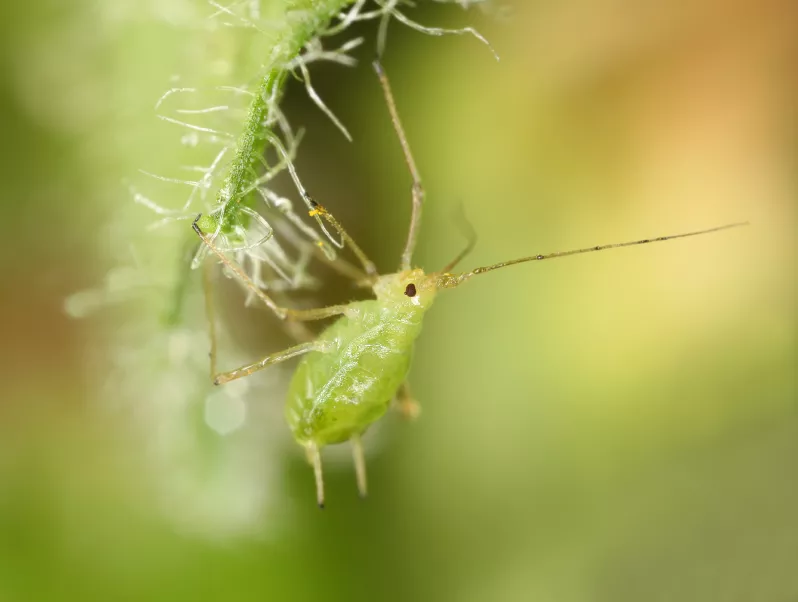- Aphids - what to do?
- Means against heavy aphid infestation
- Prevention of aphids
- Good prevention reduces lice infestation
- tips and tricks
Aphids are quite common on parsley outdoors. A bad location, too dense planting and too much moisture are usually to blame. What you can do against lice and how best to prevent them.

Aphids - what to do?
- collect
- Spray off with a water jet
- Prepare nettle stock
- Cut off affected leaves
If the parsley is infested with lice, it can hardly be used in the kitchen. Who would want to find lice on the salad?
If the infestation is low, you should collect the lice or spray the plants with a gentle jet of water.
Means against heavy aphid infestation
Even if there are a lot of aphids on the plant, do not use chemical agents. They are not only harmful to beneficial insects, but also to you if you consume parsley treated in this way.
Prepare a nettle decoction and spray the plants with it.
To do this, cut a few non-flowering nettles and place them in lukewarm water for 24 hours. Pour off the water and fill the brew into a jar. After treatment, you should not harvest the parsley for a long time.
Prevention of aphids
- Don't plant too densely
- Keep only moderately moist
- Half-shady location without direct sun
- Put distraction plants
- Take care of garden creatures
- keep ants away
Good prevention reduces lice infestation
A good, airy location protects against aphids. Distracting plants such as nasturtium can be very helpful. These plants are very popular with aphids, so they tend to go for the cress rather than the parsley.
Some beneficial insects, such as lacewings or ladybugs, live on aphids. Use insect hotels to ensure that these garden dwellers feel at home in your garden. They eat most of all lice.
Ants help spread lice. Therefore, keep ants away from the parsley by interrupting the pathways and removing ant nests.
tips and tricks
If the aphids have appeared on the parsley in the pot, you can try soaking the parsley pot with the leaves down in water for some time. This will kill many lice. Keep infested pots separate to prevent the lice from spreading further.
ce